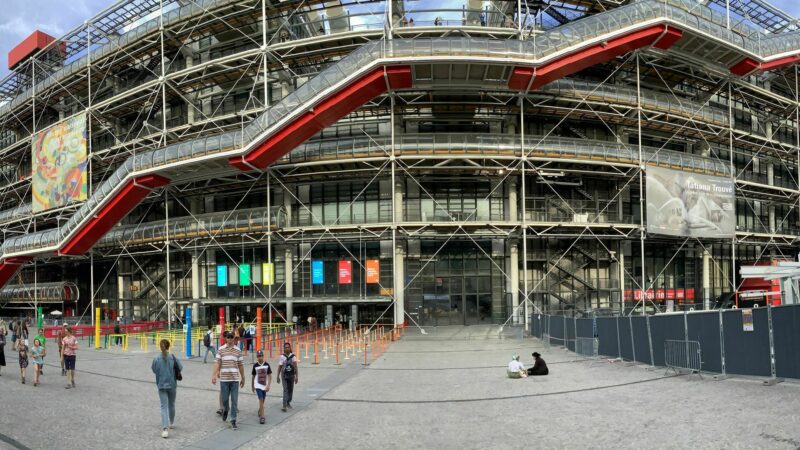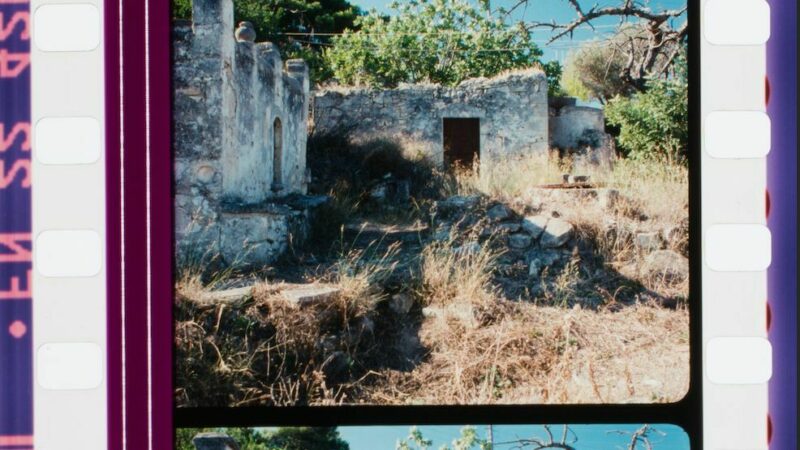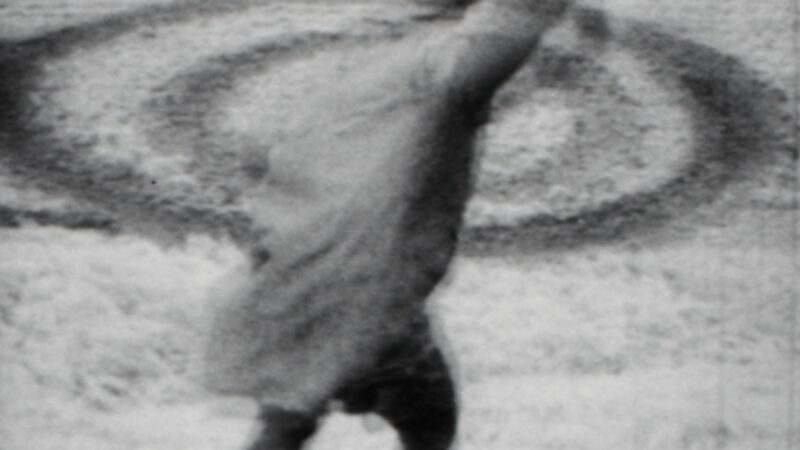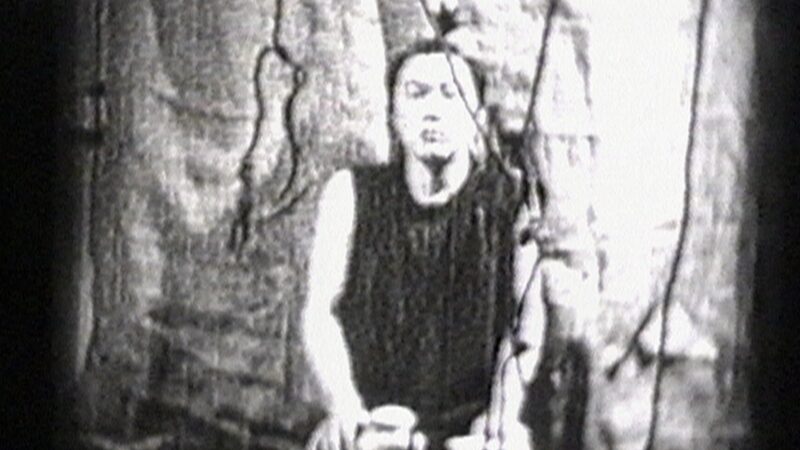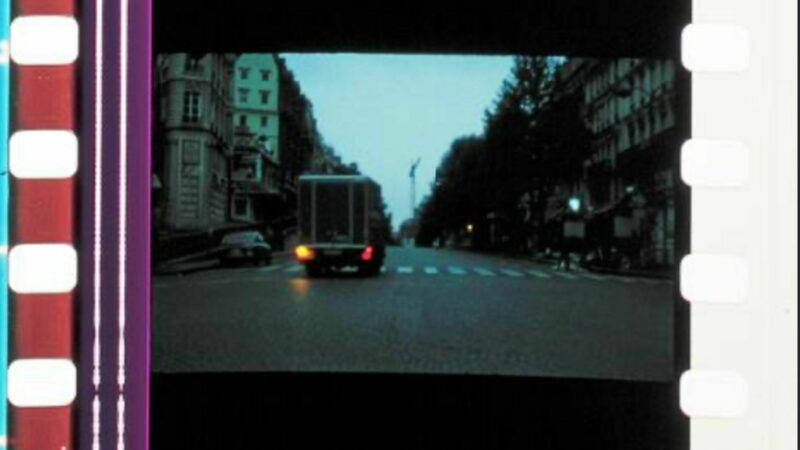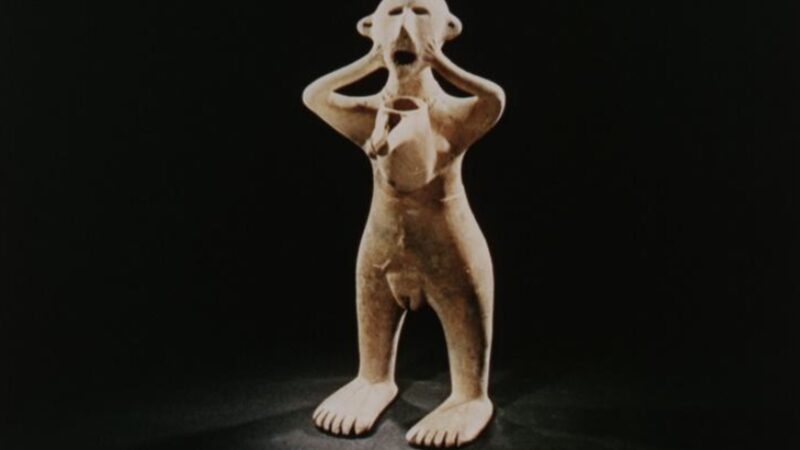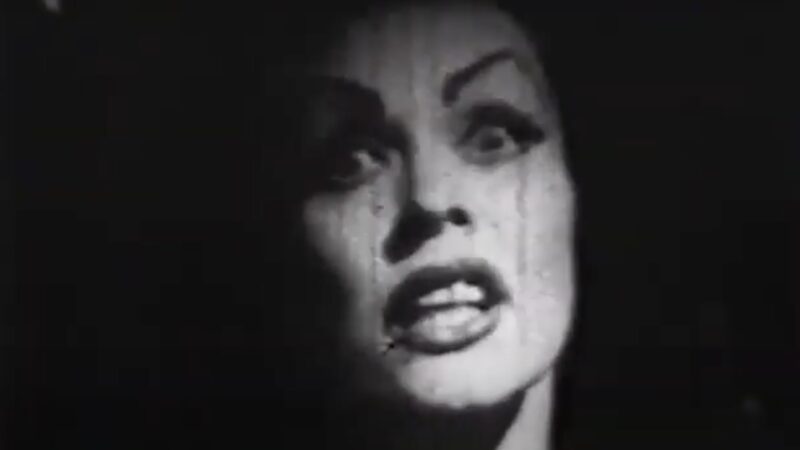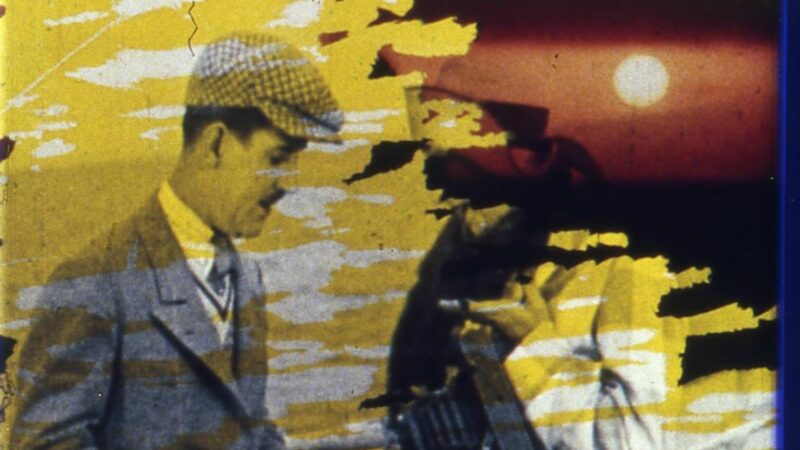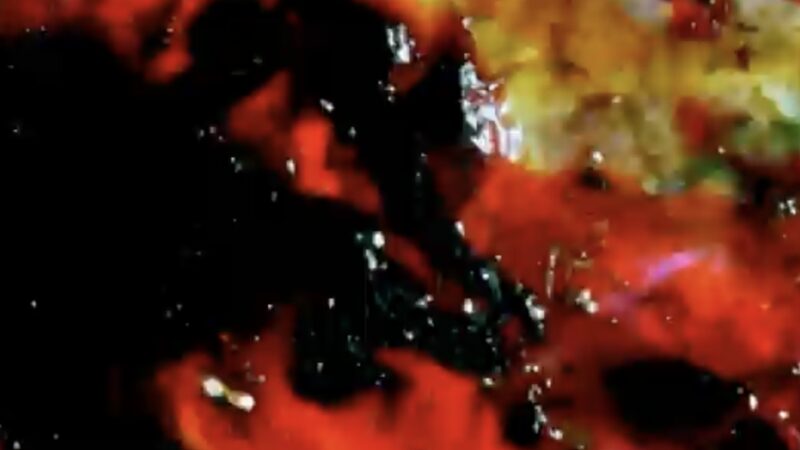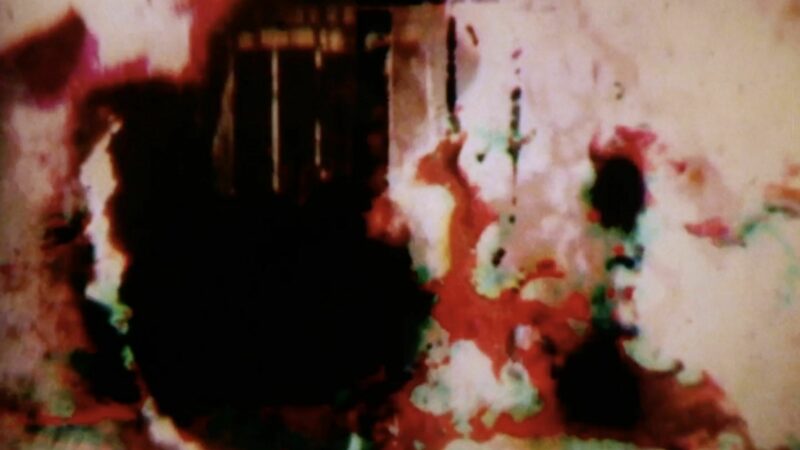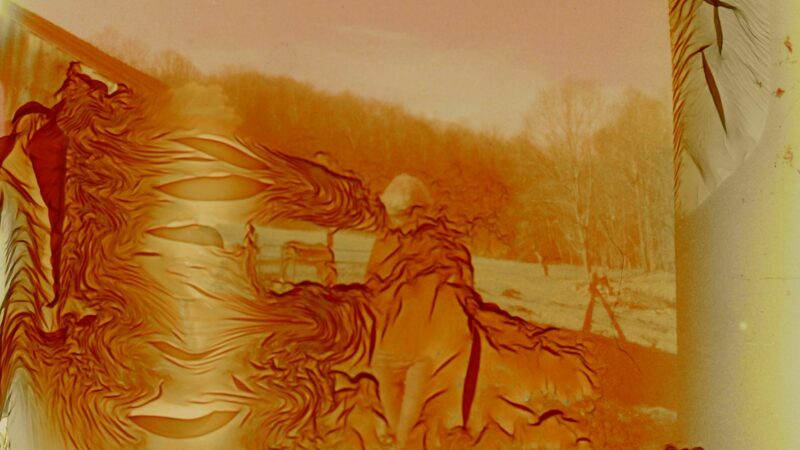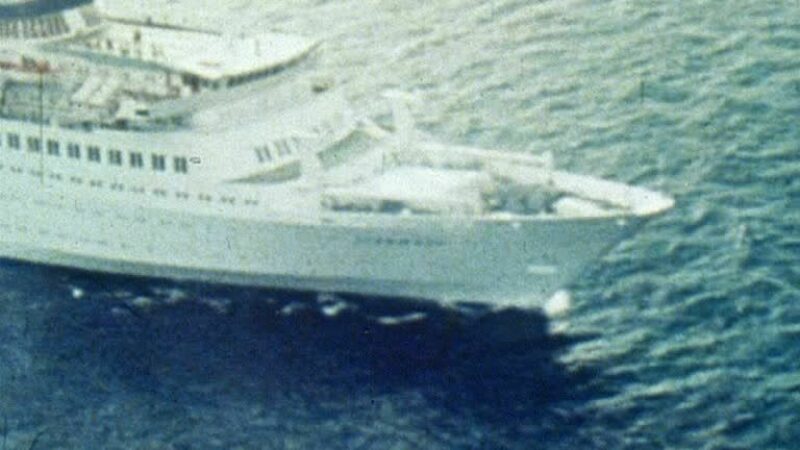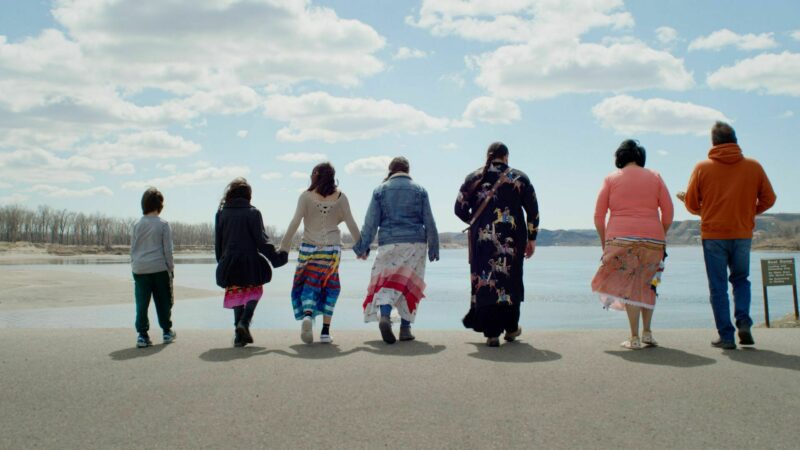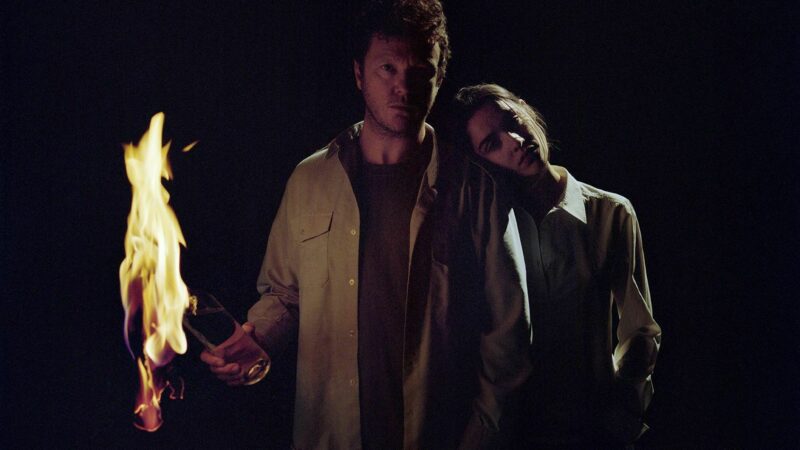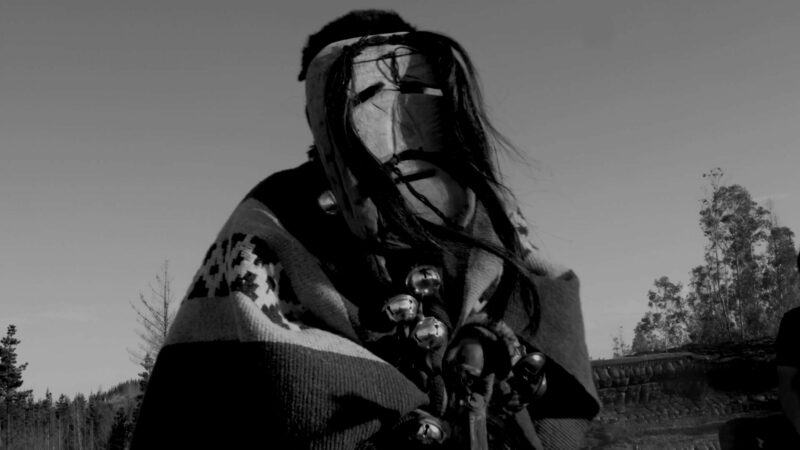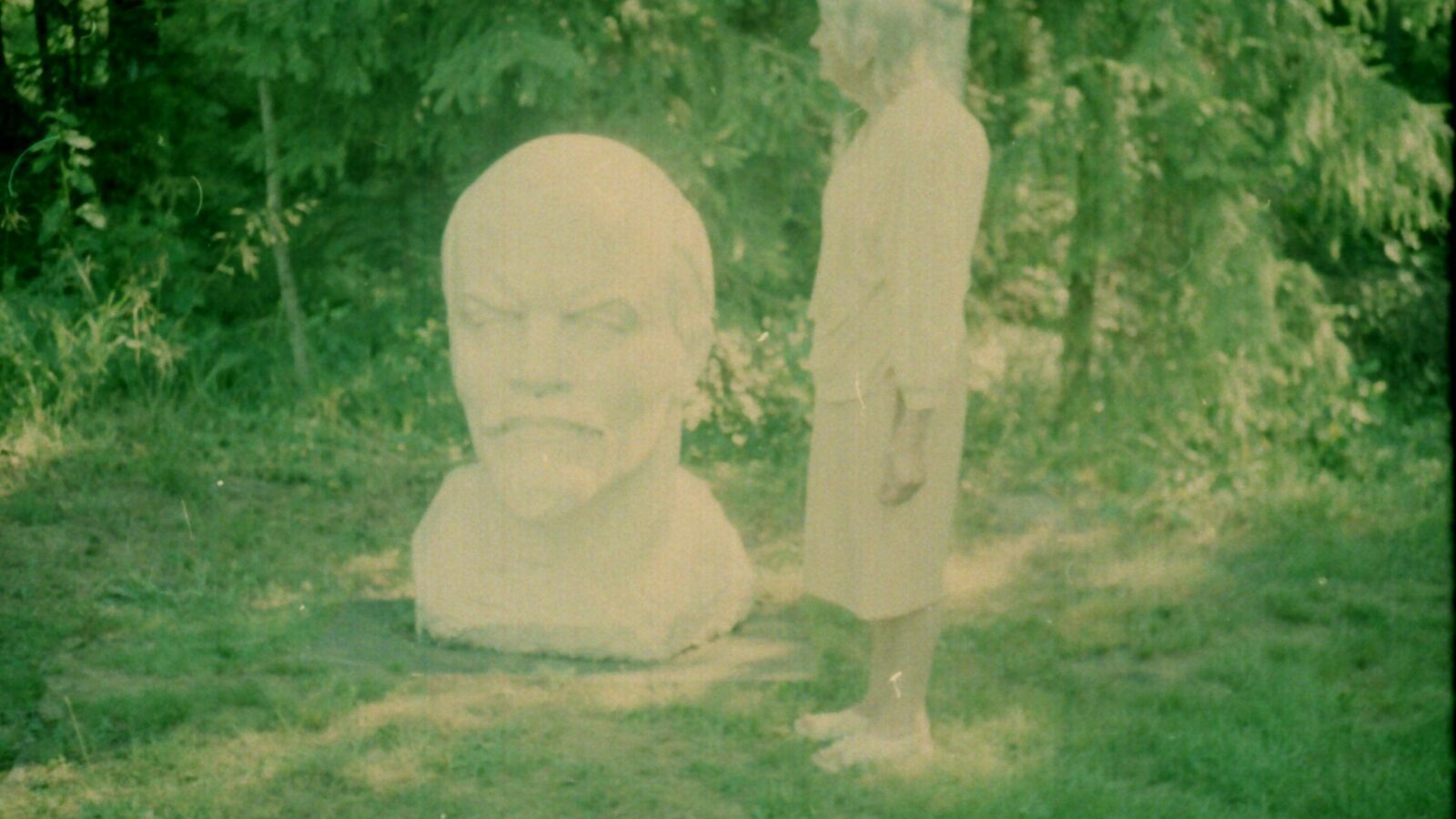
The Footstones in Night Writing
Emilija Škarnulyte
Presented only in theatres.
This film is part of the program Carte Blanche au Centre Pompidou.
Through her works, Emilija Škarnulyte explores the invisible links between the physical world and historical and societal imaginations. In The Footsteps in Stones Writing, the artist’s grandmother, Aldona, becomes the protagonist of a story suspended between present and past. Filmed in 16mm, the wandering of this person deprived of sight in the alleys of Grutas Park, a site of Soviet sculptures located near Druskininkai, becomes the heart of a tactile reflection on loss — that of the senses, of identity and of history. Founded after the collapse of the USSR, this park, where Soviet statues are exhibited, functions as an allegory of a painful and complex past. The contrast between the fragility of the character’s gestures and the silent monumentality of the statuary underlines the coexistence of contradictory temporalities: what remains and what is lost, geological time and human time. With The Footsteps in Stones Writing, the Lithuanian artist leads a meditation on memory and history, showing that, even in loss, the past can be felt and rediscovered through new gestures.
Artist’s statement:
I observe as if I were an archaeologist from the future who would return to earth and see the scars left by men. Nuclear power plants, ocean basins, really deep, colossal structures left after the constant progress of human greed.
- Emilija Škarnulyte
This film is part of the program Carte Blanche au Centre Pompidou.
Through her works, Emilija Škarnulyte explores the invisible links between the physical world and historical and societal imaginations. In The Footsteps in Stones Writing, the artist’s grandmother, Aldona, becomes the protagonist of a story suspended between present and past. Filmed in 16mm, the wandering of this person deprived of sight in the alleys of Grutas Park, a site of Soviet sculptures located near Druskininkai, becomes the heart of a tactile reflection on loss — that of the senses, of identity and of history. Founded after the collapse of the USSR, this park, where Soviet statues are exhibited, functions as an allegory of a painful and complex past. The contrast between the fragility of the character’s gestures and the silent monumentality of the statuary underlines the coexistence of contradictory temporalities: what remains and what is lost, geological time and human time. With The Footsteps in Stones Writing, the Lithuanian artist leads a meditation on memory and history, showing that, even in loss, the past can be felt and rediscovered through new gestures.
Artist’s statement:
I observe as if I were an archaeologist from the future who would return to earth and see the scars left by men. Nuclear power plants, ocean basins, really deep, colossal structures left after the constant progress of human greed.
- Emilija Škarnulyte
| Director | Emilija Škarnulyte |
| Editing | Emilija Škarnulyte |
| Camera | Emilija Škarnulyte |
Session
• Université Concordia - J.A. de Sève, LB-125, Pavillon J. W. McConnell
Sunday, march 16, 2025, 03:00 p.m. — 04:13 p.m.
Production

Emilija Škarnulyte
Emilija Škarnulyt?, born in 1987 in Vilnius, Lithuania, is an artist and filmmaker who works at the crossroads of documentary and fiction. Her films and immersive installations refer to territories that respond to different logics: geological upheavals, intense human activities or, on the contrary, abandoned sites. Her work has been exhibited in institutions such as the MORI Art Museum, Kiasma, and the Gwangju Biennale, and have been screened at the Tate Modern, the Center Pompidou, and the Museum of Modern Art. Winner of the 2023 Ars Fennica Prize, she also represented Lithuania at the XXII Milan Triennale. She is co-founder of the Polar Film Lab, an analog film practice collective based in Tromsø, Norway.
Biographical notes provided by carte blanche curator Jonathan Pouthier.
Biographical notes provided by carte blanche curator Jonathan Pouthier.
In the same session
Université Concordia - J.A. de Sève, LB-125, Pavillon J. W. McConnell
Sunday, march 16, 2025, 03:00 p.m.


You would like




